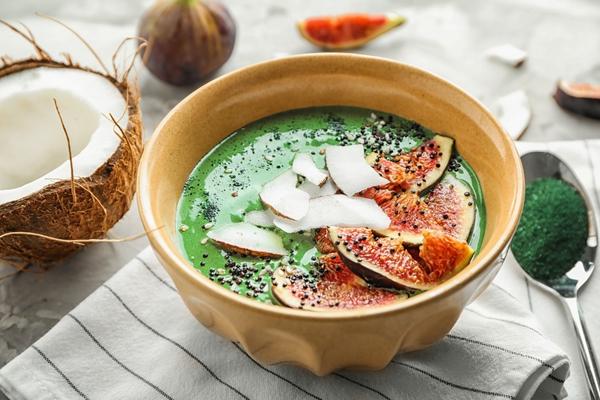Free Shipping Australia Wide
Made with under the sun daily.
Free Shipping Australia Wide
Made with under the sun daily.

What is Spirulina? In this article’s context, it’s an endurance athlete’s secret weapon, loaded with nutrients that boost performance and recovery.
What is spirulina, this unique microalgae that the sports world gravitates towards? Why does it boast such an impressive protein profile?
Intense and prolonged exercise, such as endurance sports, strains the body, leading to nutritional gaps and naturally occurring breakdown processes.
Often, these deficiencies can result in injuries, anaemia, and sluggish recovery between training sessions or events.
An increasing number of endurance athletes recognise the benefits of spirulina, integrating it into their daily routines.
Athletes are constantly looking for foods, dietary supplements or ‘superfoods’ that provide them with the essential raw materials needed for their bodies to perform optimally under the intense demands they face.

The food supplement market is brimming with products, all boasting extraordinary healing, nutritional benefits and natural origins.
Typically, these natural sources undergo various laboratory processes, resulting in supplements in capsules, powders, pills, or liquids.
More often than not, the contents remain a mystery to the consumer, who must rely on the manufacturer’s honesty in declaring all nutrients and ensuring the absence of harmful components.
The nutrition world is increasingly drawn towards the potential benefits of algae. This includes seaweed, rich in iodine but may contain impurities and traces of heavy metals, and freshwater lake algae like blue-green algae such as chlorella and spirulina.
See here spirulina images taken under the microscope
Many athletes attest to improved performance, well-being, and recovery times.
Spirulina is a highly concentrated multivitamin or superfood, packed with a broad spectrum of vitamins, minerals, antioxidants, and, crucially, a protein with high bioavailability.
Protein: The microalga boasts over 65% rich protein, encompassing all essential amino acids, the building blocks of proteins. This includes branched-chain amino acids (BCAAs).
These amino acids play a crucial role for endurance athletes in muscle, tendon and tissue recovery, repair and maintenance. The absence of a fibrous cell wall in spirulina enhances its absorption by the body.
Antioxidants: Exercise triggers the natural release of free radicals in the body as part of cellular respiration. Spirulina is abundant in chlorophyll, beta-carotene and phycocyanin, all potent antioxidants.
Additionally, it contains vitamins A, C, and E, further enriching its antioxidant profile.
Many athletes incorporate spirulina before or after their training and competitions and during, thanks to its virtually tasteless and odourless properties.
Vitamins and minerals: Spirulina is rich in various minerals, including calcium, potassium, phosphorus, magnesium, zinc, sodium, chromium, manganese, molybdenum and other trace elements. These nutrients are integral to the body’s normal functioning, aiding recovery and preventing muscle spasms and pain.

Founded in Southeast QLD and located on Certified Organic farmland, we are an Australian-made Fresh Spirulina commercial farm. We are subject to the Australia New Zealand Food Standards Code and produce fresh Spirulina using food-grade nutrients only, pay attention to the freshness and health of our spirulina.
You can visit us at our social media pages at facebook.com & instagram.com
Founded in Australia, Southeast QLD, Fresh Spirulina is a local biotech health company conducting research and innovation of micro & macroalgae as plant-based food products.
By appointment only
Monday - Friday: 08:00am - 16:30pm
Saturday - Sunday: Closed
'Let's Encrypt' SSL certificate installed on this website
*Disclaimer: Spirulina is Food, not drugs or medicine. Statements made, or products sold through this website, have not been evaluated by the Therapeutic Goods Administration (TGA) Australia. They are not intended to diagnose, treat, cure or prevent any disease. Read More »
All rights reserve © 2023, Fresh Spirulina Australia